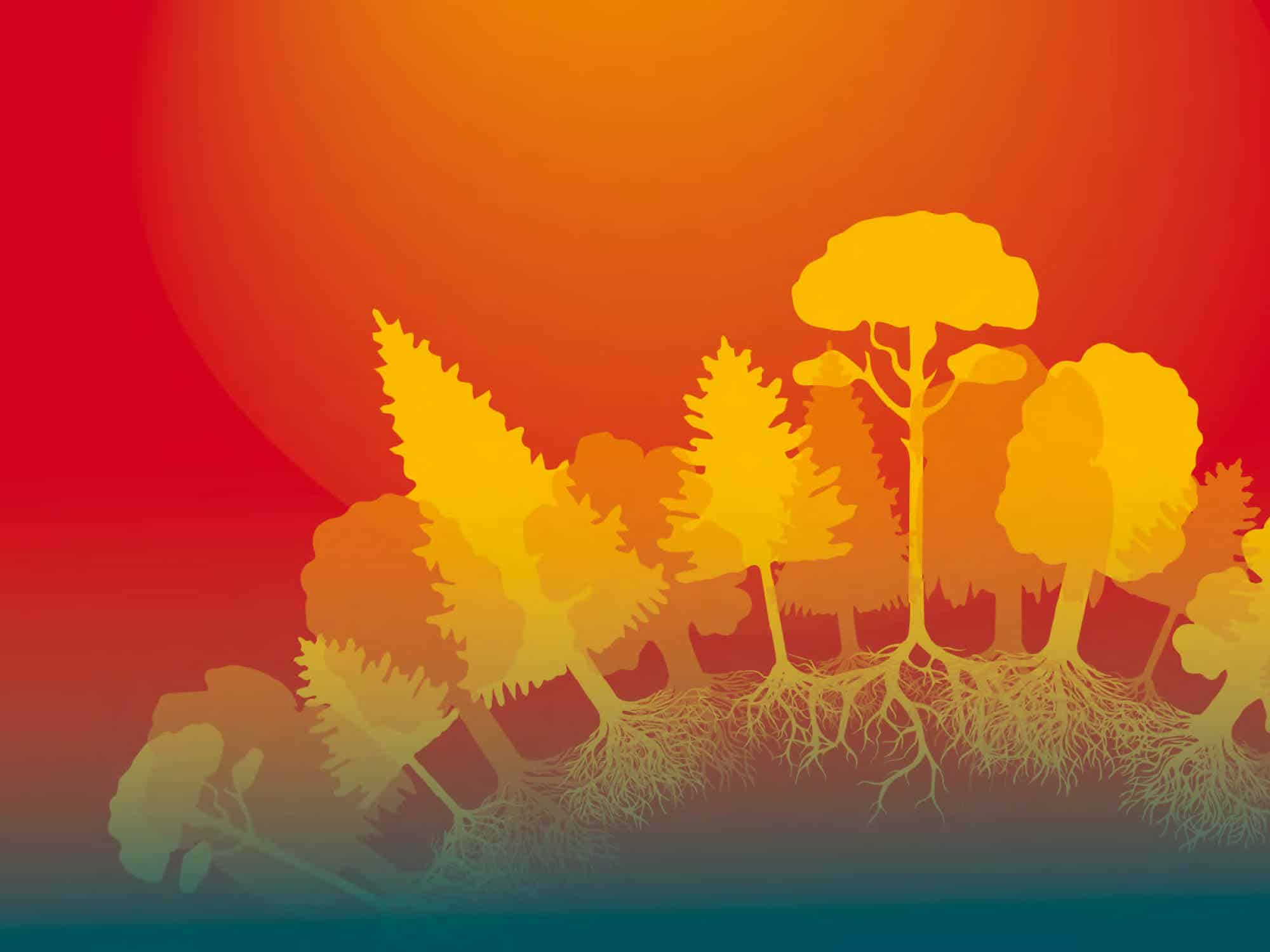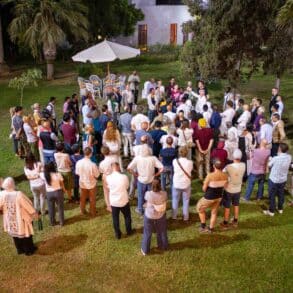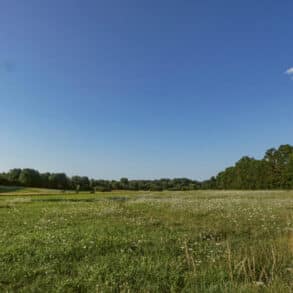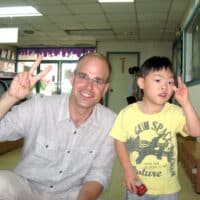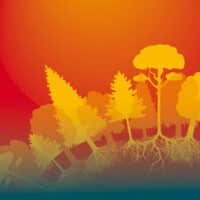Goethe uses the expression “seeing with spiritual eyes” to characterize his imaginative view of the living organism. On the basis of Rudolf Steiner’s indications and with many years of experience, this can be described and practiced quite concretely. Even outside anthroposophical circles, the question of the view of the living organism is highly topical today. Here is some background information.
In the second half of the 20th century, the question of the essence and evolution of living things seemed to have been largely resolved: organisms were thought to have arisen by chance from matter and, as gene-controlled survival machines, they gradually developed through blind selection to the abundance of species we see today. Although this materialistic-reductionist view still dominates school and university curricula, ever since the turn of the millennium, there has been an increasingly broad and in-depth discussion among both biologists and natural philosophers as to the nature of life and its evolution. At the heart of this discussion is the concept of the living organism, which is understood by many to be a complex, self-generating, autonomous “system” that actively adapts to its living conditions,1 provided that the specific properties of living things are comprehensively described phenomenologically.2 In fact, at many universities around the world, there are (predominantly) young philosophers who are researching this question.
Many natural philosophers refer to Immanuel Kant, who described the problem of the living organism so precisely in his Critique of Judgement that his analysis still provides the basis for research on this subject today.3 According to Kant, we cannot reconcile the concept of the living with our understanding of a dead, mechanical nature. We therefore try—and have been trying since ancient times—to resolve this dilemma in two ways. Either the living organism is described as a machine, albeit a complicated one, or recourse is taken to supernatural life forces, which, however, are speculative and cannot be investigated scientifically or empirically. Many researchers see the phenomenological “organi-cism” described above as a third way, but ultimately cannot avoid the question of the origin and supersensible nature of the living.
All this shows how closely the current research in the philosophy of biology comes to Goethe’s approach to living nature. In fact, the approaches of German idealism are being brought back into the discussion,4 and, in addition to isolated contributions,5 a detailed monograph on Goethe’s contribution to a living understanding of organisms was recently published.6 From there, it is only a small step to Rudolf Steiner’s presentations of Goethe’s understanding of the organism in Introduction to Goethe’s Scientific Writings, Fundamentals of an Epistemology of the Goethean World View and Goethe’s World View.
Adventures of Reason
A study of Immanuel Kant’s analysis of the cognitive process and the concept of organism reveals how strongly Rudolf Steiner drew on Kant in his epistemological writings and built on his thought formations and epistemological language. (There is much to discover here, in addition to Dietrich Rapp’s excellent analysis of Rudolf Steiner’s lifelong criticism of Kant.)7 Kant, however, stated that we can describe living organisms but cannot explain them because we have no sensory or empirical access to the life forces that organize and shape them. Goethe solved this problem imaginatively through a detailed and devoted observation of nature—his “adventures of reason” that started with the “crisis” in botany of the purely mechanical classification-taxonomy of plant life. “I am very pleased,” he said, “that I have ideas without knowing it and even see them with my eyes.”
But without Rudolf Steiner’s explanation of Goethe’s actions and their significance, we would hardly be aware of this. In this respect, an ascending line leads from Kant to Goethe, and it seems historically significant that the Critique of Judgement and Goethe’s Attempt to Explain the Metamorphosis of Plants both appeared at Easter 1790. We discover this lineage increasingly in natural philosophy. From there, it is only a small step to Rudolf Steiner’s interpretation of Goethe, to his epistemology, and finally to his instructions in How to Attain Knowledge of the Higher Worlds in order to arrive at one’s own view of the formative life forces.
Event
The Natural Sciences Section’s autumn conference, Evolving Science 2024, “Diversity Strengthens Identity” will take place in Dornach from October 10th to 13th. Christoph Hueck will lead a working group on this theme.
More Christoph Hueck
Contact c.hueck@yahoo.de
Translation Laura Liska
Image Event Flyer
Footnotes
- Alvaro Moreno, Matteo Mossio, Biological Autonomy—A Philosophical and Theoretical Enquiry, Dordrecht 2015. Matteo Mossio, Organization in Biology, Cham 2024.
- Bernd Rosslenbroich, Properties of Life—Toward a Theory of Organismic Biology, Cambridge 2023.
- Andreas Weber, Francisco J. Varela, “Life after Kant: Natural Purposes and the Autopoietic Foundations of Biological Individuality” in Phenomenology and the Cognitive Sciences, 2002, S. 97–125. John Zammito, “Teleology then and Now: The Question of Kant’s Relevance for Contemporary Controversies Over Function in Biology” in Studies in History and Philosophy of Biological and Biomedical Sciences, 2006, S. 748–770. Ina Goy, Eric Watkins, Kant’s Theory of Biology, Berlin, Boston 2014.
- Luca Illetterati, Andrea Gambarotto, “The Realism of Purposes: Schelling and Hegel on Kant’s Critique of Teleological Judgement” in Rivista di Estetica, 2020, S. 106–118. Dalia Nassar, Romantic Empiricism—Nature, Art, and Ecology from Herder to Humboldt, Oxford 2022.
- Joan Steigerwald, “Goethe’s Morphology: Urphänomene and Aesthetic Appraisal” in Journal of the History of Biology, 2002, S. 291–328. Astrida O. Tantillo, The Will To Create—Goethe’s Philosophy of Nature, Pittsburgh 2002; Lukas Bauer, Ecological Selfhood and Goethe’s Third Way Between Erfahrung and Idee” in Monatshefte, 2023, S. 42–64.
- Gregory Rupik, Remapping Biology with Goethe, Schelling, and Herder—Romanticizing Evolution, Milton Park, Abingdon, Oxon, New York 2024.
- Dietrich Rapp, Tatort Erkenntnisgrenze—Die Kritik Rudolf Steiners an Immanuel Kant; Protokoll eines Forschungsprojektes [The Crime Scene of the Boundary of Knowledge—Rudolf Steiner’s critique of Immanuel Kant; protocol of a research project] Heidelberg 2012.

